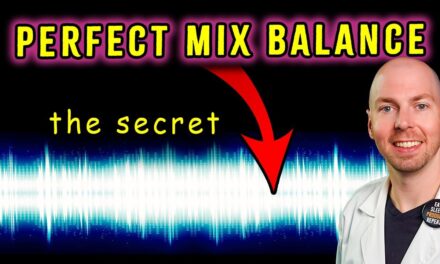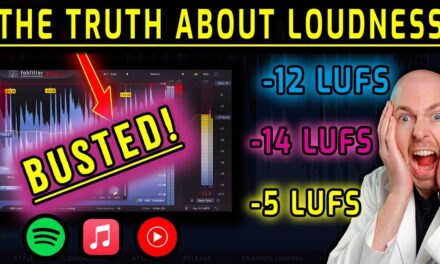
Get Better Mixes Faster [Part 1/3]: Effective Communication for Remote Mixing and Mastering
![Get Better Mixes Faster [Part 1/3]: Effective Communication for Remote Mixing and Mastering](/blog/s/img/wp-content/uploads/2018/09/Communication-pt1-Copy-3-1100x640.jpg)
How to make sure you get the mix or master you want when you can’t attend your next mixing or mastering session.
Getting songs mixed and mastered online is commonplace. Now, you can work with mixing and mastering engineers from around the world, but this also means you won’t be able to attend your mixing or mastering sessions. Sometimes, simple mix adjustments can be very difficult describe in an email or text message. This is frustrating from the artist’s perspective, because simple adjustments can take much longer to correct.
So what are the best practices to make sure you get the mix or master you want? This series of blog articles gives you the tools I’ve developed over the past 15 years to significantly reduced the amount of time spent on revisions and get better sounding mixes and masters from any engineer. I know from experience, I can quickly nail a mix or master when I understand my clients vision for their song. Lets jump in and talk about how to effectively communicate!
What Part 1 Covers:
- Finding a mixing or mastering engineer.
- Understanding limitations to mixing and mastering based on recording quality.
- What to discuss before mixing or mastering your song begins.
- Importance of providing both reference mixes of the same song and from other artists/bands you admire.
- Why you should start with big broad adjustments first before diving down into the minutiae.
- Suggestions for describing the overall mix you want (balance, mood, vibe).
Finding a mixing or mastering engineer
First, you need to find a local or online mixing or mastering engineer. A simple Google search is usually enough to find some potential engineers to work with. There are other website, like SoundBetter.com aggregate mixing and mastering engineers worldwide and allow you to directly contact them for a quote to mix your next album. If you don’t want to go through the hassle of making an account and looking through hundreds of potential mixing or mastering engineers, you can always check out our online mixing and mastering services.
Once you find a potential engineer, listen to their previous work. If their mixing or mastering portfolio doesn’t sound great, there is a good chance your music won’t sound great either. Also, be sure the engineer is comfortable with the genre you want mixed or mastered! Don’t hire a Grammy-winning jazz mastering engineer to work on your death metal record!
Set up a meeting
Once you found a potential engineer, set up a consultation. This can be as simple as an email or text message, but I would recommend picking up the phone and having an actual conversation with them. Remember, they have never heard your music, and have no idea how you want your song to sound. It is your job to convey that vision. To make sure you aren’t setting your mixing or mastering engineer up for failure, try sending your current mix of your song and ask for feedback on the quality. Make sure the recording quality is workable. Sometimes, tracks are so poorly recorded, that no amount of mixing magic will save them!
DISCUSS YOUR MUSICAL VISION FOR YOUR SONGS
When describing your vision of your music, start with the big picture and work your way into more specific details. For hip hop or rap, start by describing the sound and feel of the track. Great descriptors are words like “modern and bright” or “smooth and old school” as these help to differentiate opposing styles and mixing approaches. Because vocals are so important to rap, be sure to provide specific songs from artists that you want to sound similar to. If you are in a rock or metal band, it may make more sense to list the producer or mixing engineer of a particular album, or how loud/aggressive you want the mix or master.

Provide a reference mix of your songs
Next, send the best mix of your song to the mixing or mastering engineer for reference. Make sure to explain what you like about the mix, and what you don’t like. This is so important because these references provide guidance for the balance of the mix and what you are trying to achieve. If you have mixes that don’t sound remotely close to your desired sound, then DON’T send it as a reference mix. It will only be confusing to your engineer and a waste of everyone’s time. The better this reference mix sounds, the more likely your vision will be understood.

Provide reference mixes of songs you want to sound like
If you are going for a vibe of a particular song, share a link to it (Youtube.com links work great). These references help get “inside your head” and understand the sound you are trying to achieve. For example, you could provide a link to a song that has the right amount of airiness to the lead vocal that you love, or the hard-hitting bass you want to pound out of your sub. Make sure to explain what you specifically love about the reference song. For example, If you only love how the bass sounds but not the vocals, tell your mixing engineer that! Without any context, the mixing engineer might try to make your vocals sound like the reference you provided.
Please keep in mind your song will NEVER sound exactly like the reference songs you provide – unless it song was recorded at the same studio, with the same musicians, using the same gear, and engineered by the same person. EVEN THEN it will sound different. Embrace the difference and use it to define YOUR sound.
Have realistic expectations
Don’t ever expect an album that was recorded with $50 of equipment in your friends garage to sound like an album with $1,000,000 budget that was recorded using professional gear in a well designed recording studio. HOWEVER, this is not an excuse to send in tracks that could have been better engineered with a little research on recording a band or vocalist. Most importantly, capture GREAT performances. This will make the biggest impact on your final sound.
For more info on getting high quality tracks from your home studio, please check out our previous article on getting the most out of your recording studio without breaking the bank!
wHAT’S IN part 2?
In part 2, we show you the proper way to write your mix revision notes and tactics to get the mixing or mastering engineer to see from your perspective!
If you liked this tutorial, please share it with others that are making music. What questions do you have about working with an online mixing or mastering engineer?
Leave a comment below and let’s start a conversation!















![Vocal Tuning Trick [Clean and Transparent]](/blog/s/img/wp-content/uploads/2018/10/RP-Blog-Vocal-Tuning-Tricks-440x264.jpg)



Trackbacks/Pingbacks